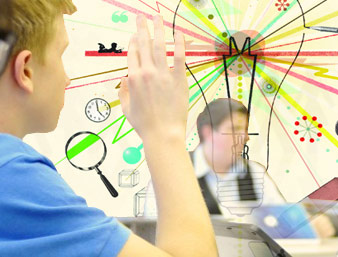
Инновационные подходы к изучению иностранных языков в лицеях и гимназиях России во второй половине XIX – начале XX века
Российская средняя школа прошлого, прежде всего лицеи и гимназии, всегда ориентировалась на подготовку своих выпускников к овладению иностранными языками, к пониманию культуры и литературы других народов. Наша национальная элита XIX века, как известно, часто предпочитала общение на французском даже в исключительно родной, русскоязычной среде. Ситуация в сегодняшнем глобальном мире заставляет нас оглянуться назад и попытаться осмыслить накопленный веками опыт, в том числе, и в плане преподавания иностранных языков. Прекрасной основой тому является изучение развития России, ее общественной и культурной мысли во второй половине XIX – начале XX века.
Напомним, со второй половины XIX века Российская империя была втянута в ускоренный процесс развития капитализма с последующим переходом в империалистическую фазу, что в некоторой степени соответствует современному состоянию Российской Федерации (построение капитализма в конце XX века и поиск места России в глобальном современном мире). Вторая половина XIX столетия стала эпохой бурного подъема промышленности, развития науки, техники, роста культуры и просвещения. Под влиянием развития точного знания, изменения экономических отношений и культурных обменов остро встал вопрос об овладении иностранным языком как основы в постижении другой культуры, передовых идей и технологий. Ценным было не только владение самим языком, но и возможность «прикоснуться» к идеалам другого народа, его культурному и научному потенциалу.
Innovative approaches to teaching foreign languages in Russian lyceums and high schools in the second part of the 19th – beginning of the 20th century
In the past, Russian secondary schools, especially lyceums and high schools were oriented towards training students to master a foreign language, comprehend foreign culture and literature. It is a well-known fact that the Russian national elite of the 19th century often preferred communicating in French even within the exclusively Russian language environment. The present world situation makes us look back and try to comprehend a many-centuries’ experience, including the one in the sphere of teaching foreign languages. A perfect basis for it could be studying the development of the Russian society and the conceptions of culture in the second part of the 19th – beginning of the 20th century.
Since the second part of the 19th century the Russian empire was involved in the accelerated capitalism development process with a subsequent transition into an imperial phase, which to some extend, corresponds with the current situation in the Russian Federation (development of capitalism at the end of 20th century and search for Russia’s place in the contemporary global world). The second part of the 19th century became the time of a rapid industrial rise, development of science and technology, culture and education. Under the influence of science development, changes in economic relations and cultural exchanges the knowledge of a foreign language became essential as a basis for comprehension of another culture, advanced concepts and technologies. Not only the language itself was valuable but also the opportunity to approach another nation’s ideals, its cultural and scientific potential.




